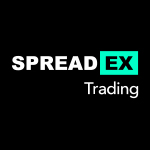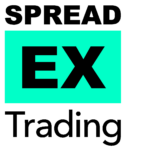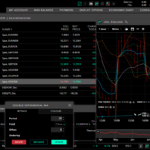Yes, indices are the most popular asset class with Spreadex’s predominantly UK-based clients as opposed to other brokers like Pepperstone where forex is more popular for international clients.
Recently Reduced Index Trading Spreads
CFD and spread betting broker Spreadex has trimmed the spread on its US 100 tech index contract which closely follows the performance of the Nasdaq 100 index. The spread on this very popular index contact will narrow to as little as 1 index point during the peak US session.
The US Tech 100 contract reflects price changes in an index that contains the touchstone stocks of 2024.
Magnificent 7 Stocks such as Apple (AAPL), Meta Platforms (META), Nvidia (NVDA), Microsoft (MSFT) Alphabet (GOOG) Advanced Micro Devices (AMD) and Broadcom (AVGO.
These stocks have been the driving force behind the rally in US equities year to date.
Interest in and the sentiment around technology have been buoyed by the promise of generative AI and the impact it could have on our day-to-day lives.
However, investors recently appeared to lose confidence in the prospects for the Tech sector and the US 100 index fell by as much as -7.00% in April, with Nvidia falling by -10.00% in a single session, though both instruments have now partially recovered.
Tighter spreads but not the tightest
Spreadex decision to trim the spread on the US Tech 100 is to be welcomed.
However, the 1.0 spread on the contract could still look expensive when compared to its broader-based rivals, the S&P 500 and Russell 2000.
The US 500 contract has a spread of 0.4 points and the Russell 2000 contract from 0.3 points at Spreadex.
That difference in pricing is likely down to levels of volatility within the respective indices, though it is worth noting that the S&P 500 and the Russell 2000 include the major Nasdaq 100 stocks.
Competitive Index Trading Spreads
So how does Spreadex’s new US Tech 100 spread compare with the competition?
Well, a spread bet on IG’s daily US Tech 100 carries a spread of 1.0 index points between 14.30 and 21.00 London widening to 2.0 points between 21.00 and 14.30 the following day, though for between 22.00 and 23.00, the spread widens to an unpalatable 5.0 points.
At City Index spread in the US Tech 100 starts at 3.0 points, whilst rival CMC Markets offer spreads on the index from 1.0 point.
The width of a spread can be an important factor, particularly for very active traders, whose marginal profitability can be significantly boosted by tighter trading conditions.
Conversely, of course, the price maker sees a reduction in income when spreads narrow, though they hope to make up for the slimmer margin through an increase in turnover.
For many index traders, however, it’s more about being directionally correct than anything else.
But of course, an extra couple of points in PnL at the end of a trade is always welcome.
Compare Spreadex to other index brokers below:
| Index Trading Platform | Indices Available | Index CFDs | Index Spreads | Index Futures | Index Options | MT4/5 | Customer Reviews | More Info |
|---|---|---|---|---|---|---|---|---|
 | 40 | ✔️ | ✔️ | ❌ | ✔️ | ✔️ | (Based on 124 reviews)
| See Platform 69% of retail investor accounts lose money |
 | 40 | ✔️ | ✔️ | ❌ | ❌ | ✔️ | (Based on 19 reviews)
| See Platform 74% of retail CFD accounts lose money. |
 | 28 | ✔️ | ✔️ | ❌ | ❌ | ✔️ | (Based on 86 reviews)
| See Platform 71.9% of retail investor accounts lose money |
 | 39 | ✔️ | ❌ | ❌ | ❌ | ❌ | (Based on 146 reviews)
| See Platform 76% of retail investor accounts lose money |
 | 13 | ✔️ | ❌ | ✔️ | ✔️ | ❌ | (Based on 1,330 reviews)
| See Platform 59.7% of retail investor accounts lose money |
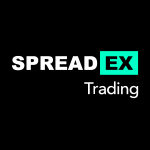 | 30 | ✔️ | ✔️ | ❌ | ❌ | ❌ | (Based on 257 reviews)
| See Platform 62% of retail investor accounts lose money |
 | 80+ | ✔️ | ✔️ | ✔️ | ✔️ | ✔️ | (Based on 678 reviews)
| See Platform 68% of retail investor accounts lose money |
 | 80+ | ✔️ | ✔️ | ❌ | ❌ | ✔️ | (Based on 149 reviews)
| See Platform 64% of retail investor accounts lose money |
 | 29 | ✔️ | ❌ | ✔️ | ✔️ | ✔️ | (Based on 74 reviews)
| See Platform 62% of retail investor accounts lose money |
 | 15 | ✔️ | ❌ | ❌ | ❌ | ❌ | (Based on 282 reviews)
| See Platform 61% of retail investor accounts lose money |
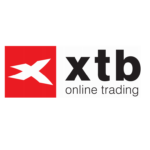 | 25 | ✔️ | ✔️ | ❌ | ❌ | ❌ | (Based on 136 reviews)
| See Platform72% of retail investor accounts lose money |

Richard is the founder of the Good Money Guide (formerly Good Broker Guide), one of the original investment comparison sites established in 2015. With a career spanning two decades as a broker, he brings extensive expertise and knowledge to the financial landscape.
Having worked as a broker at Investors Intelligence and a multi-asset derivatives broker at MF Global (Man Financial), Richard has acquired substantial experience in the industry. His career began as a private client stockbroker at Walker Crips and Phillip Securities (now King and Shaxson), following internships on the NYMEX oil trading floor in New York and London IPE in 2001 and 2000.
Richard’s contributions and expertise have been recognized by respected publications such as The Sunday Times, BusinessInsider, Yahoo Finance, BusinessNews.org.uk, Master Investor, Wealth Briefing, iNews, and The FT, among many others.
Under Richard’s leadership, the Good Money Guide has evolved into a valuable destination for comprehensive information and expert guidance, specialising in trading, investment, and currency exchange. His commitment to delivering high-quality insights has solidified the Good Money Guide’s standing as a well-respected resource for both customers and industry colleagues.
To contact Richard, please see his Invesdaq profile.

